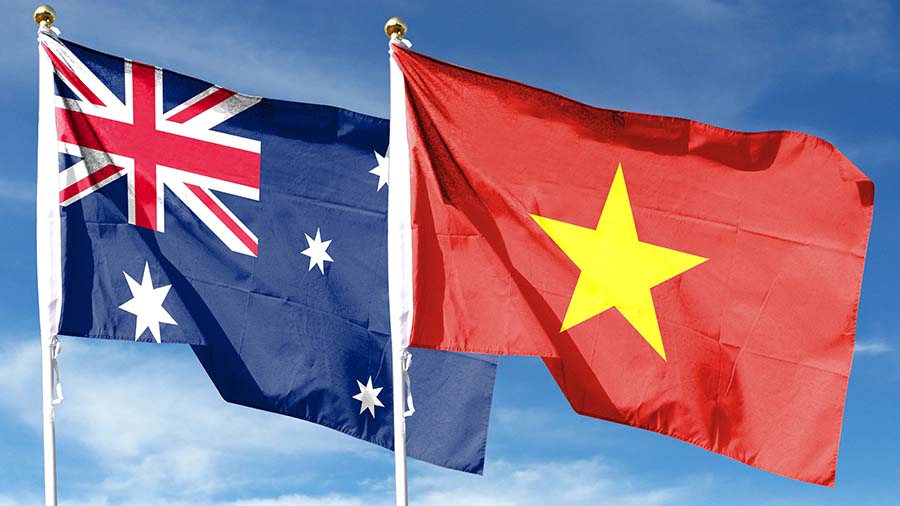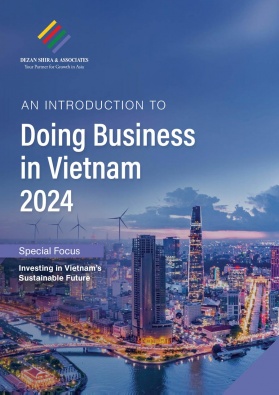Vietnam-South Korea Social Security Agreement: Key Details
The Social Security Agreement between Vietnam and South Korea, which officially came into effect on January 1, 2024, represents a significant milestone in the bilateral relationship between the two countries.
Introduction
Vietnam and South Korea have enjoyed strong economic relations for years, with a significant number of Vietnamese workers in South Korea and Korean workers in Vietnam. The need for a formal agreement to address social security issues, such as double taxation and benefits protection, became apparent as the number of cross-border workers increased. The agreement was signed to address these concerns and ensure that workers are covered by social insurance in only one country at a time.
The Social Security Agreement between Vietnam and South Korea, officially enacted on January 1, 2024, marks a significant milestone in bilateral relations. This reflects the growing economic and labor ties between the two nations. The agreement aims to eliminate double social security taxation, protect the rights of workers, and facilitate cross-border employment and business activities.
The signing is seen as a significant step in protecting the social insurance rights of workers and enhancing cooperation between the two countries.
Overview of the Agreement
The agreement was signed by Vietnamese Deputy Minister of Labor, Invalids and Social Affairs (MOLISA) Nguyen Ba Hoan and Deputy Minister for Planning and Coordination of the Korean Ministry of Health and Welfare (MOHW) Kim Hye-jin, aiming to protect the social insurance rights of workers from both countries and prevent double taxation.
This is the first such agreement between Vietnam and another country. It will benefit the approximately 250,000 Vietnamese in South Korea and 200,000 Koreans in Vietnam by facilitating better labor management and information sharing.
Implementation and administration
To facilitate the application and implementation of the agreement, Vietnam’s Social Insurance Agency issued Official Letter No. 862/BHXH-TST on March 29, 2024. The Vietnam Social Security’s official letter provides detailed guidance on implementing the Social Insurance Agreement between Vietnam and South Korea. The letter directs Social Insurance Departments in provinces and cities on the procedures for:
- The scope of application;
- The issuance and receipt of Social Insurance Certificates (SICs); and
- The suspension of compulsory social insurance contributions in Vietnam for Vietnamese workers working in South Korea.
This directive applies to the below three specific categories.
- Dispatched workers: Vietnam and S.Korea will issue Social Insurance Certificates for the workers they send to each other’s markets, exempting them from contributions in their host country for up to 60 months, with the possibility of extensions up to an additional 36 months if the worker remains with the sending employer.
The exemption period will be recalculated, and a new overseas work period will begin when workers who have returned to their home country are sent to work abroad again. Those sent overseas before the Agreement’s effective date will enjoy the exemption period beginning on that date. - Locally hired workers: Vietnamese citizens working in South Korea and S.Korean citizens working in Vietnam will adhere to the National Pension Act of South Korea. For S.Korean workers, this regulation will be applied during the employment period for at most 60 months, provided that these individuals are subject to South Korean law.
- Vietnamese workers in South Korea under contracts: Effective January 1, 2024, under certain contracts covered by mandatory social insurance regulations, Vietnamese workers in South Korea will stop making compulsory contributions in Vietnam and continue under South Korean law. This guidance represents a significant advancement in protecting the rights of migrant workers and streamlining the procedures under the Social Insurance Agreement between the two countries. It is expected to enhance worker mobility and streamline social security processes for Vietnamese and Korean workers. Provincial social insurance agencies are anticipated to provide further implementation guidance.
A few more details of the same, in the scope of the application, are as follows:
- Issuance of Social Insurance Certificates: The VSS and the National Pension Service of South Korea are responsible for issuing SICs for their respective nationals, which exempt them from participating in the host country’s Social Insurance system.
- Procedure for Ceasing Contributions: Vietnamese workers in Korea are to cease compulsory Social Insurance contributions in Vietnam starting January 1, 2024, and contribute to South Korea’s system instead. Necessary documents and procedures for ceasing contributions and confirming participation periods are outlined.
- Applicability: The agreement applies to workers who are employed in one country but are either nationals of the other country or are working for employers registered in the other country. The agreement covers both dispatched workers (those sent by their employer to work in the other country) and locally-hired workers.
Vietnam competent agencies
According to Plan No. 1374/KH-BHXH by Vietnam Social Security, relevant ministries and government agencies in Vietnam will share responsibilities on implementing the social insurance agreement between Vietnam and South Korea:
- The Ministry of Labour, Invalids and Social Affairs will work with other relevant ministries, sectors, and Korean partners, for policy formulation, agreement implementation and dissemination, training for civil servants, and rewarding outstanding achievements. The implementation of the agreement should be integrated into annual action plans.
- The Department of International Cooperation in Vietnam will oversee the promotion and execution of the tasks related to this agreement. All relevant units are required to ensure timely and effective implementation, with progress reports due by November 30, 2024.
- Heads of units and provincial directors are obligated to report to Vietnam Social Security by 30 November, 2024, on ensuring progress, quality, and effectiveness of the agreement.
Benefits and impact
The Agreement is expected to significantly enhance worker mobility between the two countries by reducing the administrative burden and financial costs associated with double social security contributions.
It will also provide a more transparent framework for protecting workers’ rights and ensuring that they can benefit from the social insurance contributions made, regardless of where they have worked.
By fostering easier cross-border assignments and business travel, the agreement is likely to further strengthen economic ties between Vietnam and South Korea, promoting increased investment and cooperation between businesses in both countries.
Conclusion
The Vietnam-South Korea Social Security Agreement represents a forward-thinking approach to managing the complexities of cross-border employment in an increasingly globalized world. By ensuring that workers are fairly covered by social insurance and by eliminating double taxation, the agreement sets a strong foundation for continued collaboration and growth between Vietnam and South Korea.
As the Agreement is implemented, it is expected to bring significant benefits to both countries, their workers, and their economies.
About Us
Vietnam Briefing is published by Asia Briefing, a subsidiary of Dezan Shira & Associates. We produce material for foreign investors throughout Asia, including ASEAN, China, and India. For editorial matters, contact us here and for a complimentary subscription to our products, please click here. For assistance with investments into Vietnam, please contact us at vietnam@dezshira.com or visit us at www.dezshira.com.
Dezan Shira & Associates assists foreign investors throughout Asia from offices across the world, including in Hanoi, Ho Chi Minh City, and Da Nang. We also maintain offices or have alliance partners assisting foreign investors in China, Hong Kong SAR, Dubai (UAE), Indonesia, Singapore, Philippines, Malaysia, Thailand, Bangladesh, Italy, Germany, the United States, and Australia.
- Previous Article How Emerging Economies Vietnam and India Complement Each Other
- Next Article Vietnam’s 2025 Enterprise Investigation: Key Targets and Timeline
































